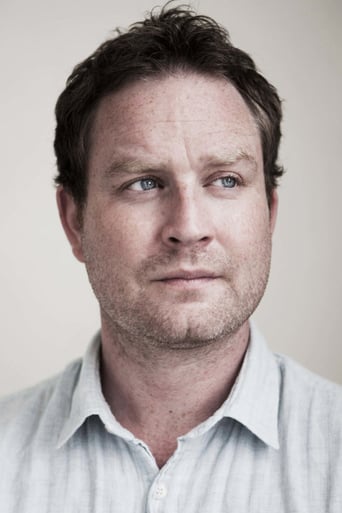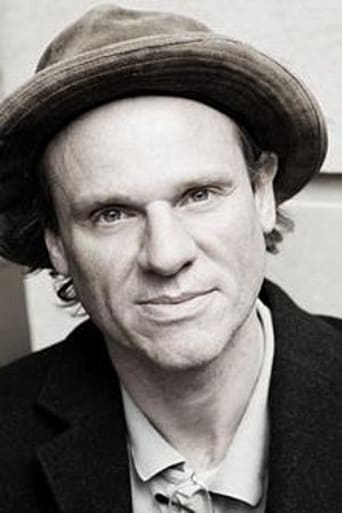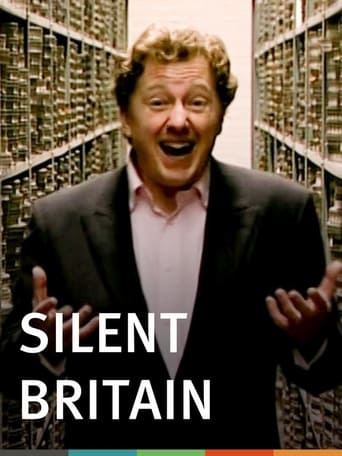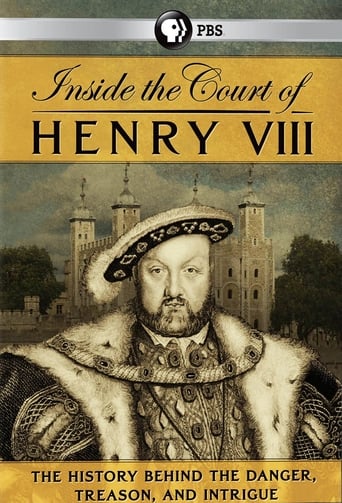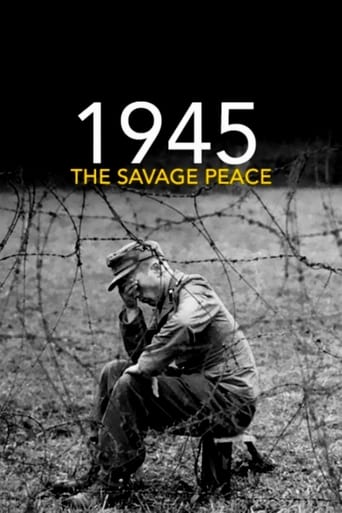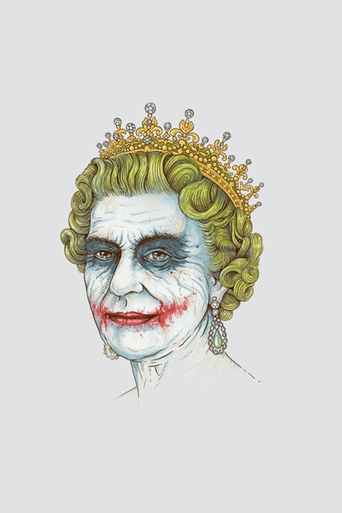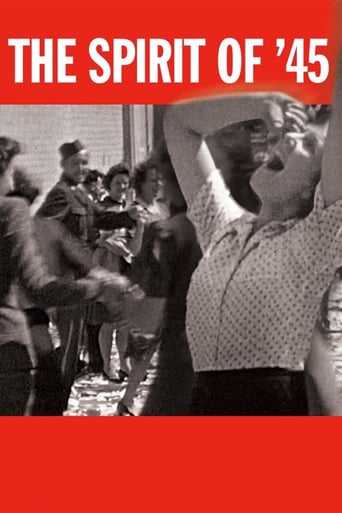
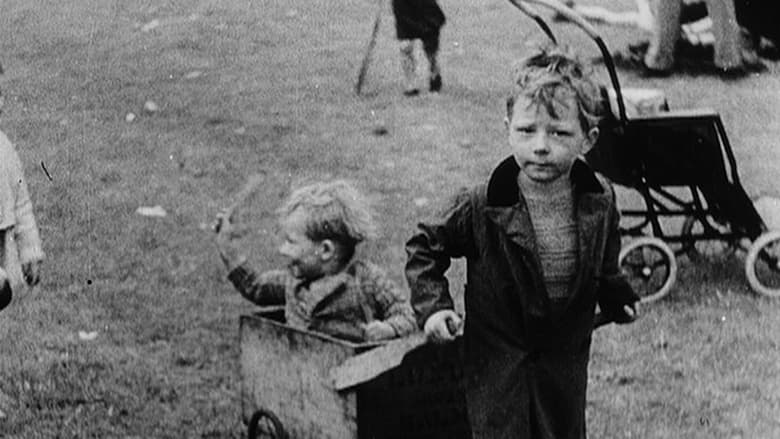
The Spirit of '45 (2013)
How the spirit of unity, which buoyed Britain during the war years, carried through to create a vision of a fairer, united society.
Watch Trailer
Cast
Similar titles
Reviews
Touches You
Don't listen to the Hype. It's awful
best movie i've ever seen.
It's fun, it's light, [but] it has a hard time when its tries to get heavy.
THE SPIRIT OF 45 goes back to the end of the Second World War to recreate the unique spirit of that era, when it really did seem as if a new order had been set up in Great Britain, one dedicated to everyone working for each other rather than out to make individual profits. Industries were nationalized with the aim of securing viable investment, the National Health Service offered medical care at point of contact for everyone, while the government of the time dedicated itself for everyone rather than simply appealing to rich interests. With the help of archive film plus testimonies from those who were around the period, Ken Loach evokes a unique spirit, one which has not existed either before or after that period.Within those terms, the film is a nostalgic piece which makes some important points about people's capacity to change things, if they really want to. But unfortunately Loach veers off his theme when he introduces Margaret Thatcher into the proceedings. It is true that she ushered in a new area of capitalism and selling off state industries to the highest bidder, but we have to remember the size of her victories, which suggest that a substantial slice of the working classes actually voted for her, in spite of the fact that she was working against their interests. What the film illustrates above anything else is the limitation of communal activity, especially when voters are swayed by the prospect of increased wealth through private enterprise - for example, by being given the chance to buy their council houses. It might not be ethically fair, especially for those too poor to accomplish this, but people basically think for themselves first and their fellow-citizens later. In a sense we were responsible for creating a capitalist world; Mrs. Thatcher only offered the conditions.With this in mind, a lot of the second half of THE SPIRIT OF '45 is largely rubbish, the product of a mind that consciously misreads British history and simply blames the government for all of our problems, rather than ourselves. On the other hand I applaud Loach for advocating this view, for it is only by appreciating its limitations that we can understand that we are responsible for our own demise.
Some people have complained that the film is not objective, I think they're missing the point. The point of this documentary is to capture the essence of that time. What our parents and grandparents had endured and how they faced up to the future with hope for a better world than that passed away with war. That working together in commonality could build a better world for future generations and they did just that. The achievements of the Atlee government still reverberate down the decades and are with us still.They did what they did in far harder times than now, are we so useless that we cannot do it?
"The Spirit of '45" reminds us of the air of progress occurring in British politics immediately after World War II. It takes back to the founding of welfare state and the nationalization of the health service, transport, energy and other areas of public life. The faces we see at the beginning of the film of young Britons celebrating in the fountains at Trafalgar Square symbolize the hope of a nation. But Loach is also worried about the spirit of modern Britain. The second part ponders a different mood than the one of the 1940s: Thatcherism and the more recent failures of organized labor to live up to its founding principles. On the whole this is a tender and humane film, a compelling mix of interviews, with archive footage. The film works all at once as a lament, a celebration and a wake- up call to modern politicians, it's only a bit boring.
Ken Loach's THE SPIRIT OF '45 is one of his occasional forays into documentary,and a timely and prescient one,recalling the immediate period just after World War II had ended,with Britain for the very first time electing a majority government for the Labour Party,led by Clement Attlee,on a genuinely radical,socialist agenda,embracing nationalisation of most heavy industry,a welfare state,Keynesian economics,widespread council house building and perhaps most notably,the founding of the NHS.The British people appreciated Winston Churchill's efforts at leading the nation and defeating the Nazis during the war,but felt Attlee was the man to lead them during the early years of peace afterwards.Loach has never been afraid to acknowledge his socialist leanings in public and on film,and this is a predictably affectionate,sometime sentimental tribute to the system he holds most dear,with interviews with various people from the era,housewives,miners,steelworkers,nurses among them and their experiences of pre-war poverty (some of them very moving),with more up to date opinions from dockers,academics and politicians.It is all relentlessly subjective,with no critical voices from other viewpoints in sight,and there are parts of the film which would've been helped by a more balanced outlook (it fails to acknowledge that the Conservatives broadly accepted these changes when they were in government in the next three decades),as Loach plunges the film into near,but not quite,hysterical tub-thumping,with any other political,social and economic opinions ignored or regarded as virtual evil.This is more than evident in the latter stages of the film;Loach shoots forward in time three full decades to when Margaret Thatcher became Conservative PM in 1979,as important an election as that of 1945.After the various crises of the 70's,such as the oil shock,stagflation and industrial unrest,her dismantling of the post-war consensus,returning to pre-war free market economics,accepted by the Labour Party when they got into power,is predictably savaged,referring to the mid-80's miner's strike,deregulated banks and markets,sale of council houses and industries and utilities privatised across the board.But now with the UK and much of the developed world in the worst recession since the war,mostly caused by the emphasis on free market economics and deregulated banks,perhaps a politically angry film like this should be seen,even if you don't necessarily agree with Loach's politics.Whatever you think of him,for or against,Loach is still a great filmmaker,and though some of the partisan views on show do sometimes become too excessive,it's good to see working class people,old,middle- aged and young,treated with more respect,dignity and compassion than has been the norm for around a decade or so on British film,TV and media in general,when crude if not offensive stereotyping and caricatures have mostly been the order of the day.THE SPIRIT OF '45 is the kind of film that will take no prisoners,and if you are the total opposite in politics to Ken Loach,fire will be spat at the screen.But there is never a dull moment,and Loach's appeal for a more inclusive,equal and less divisive society,all but evident here,may be increasingly prescient in the midst of grim,interminable austerity,as was suffered in the 30's Depression after the credit-leaden excesses of the Roaring 20's.There maybe another change in economic outlook soon in modern times,as there was with THE SPIRIT OF '45,which Loach quite obviously would like to revive again.RATING:7 out of 10.

